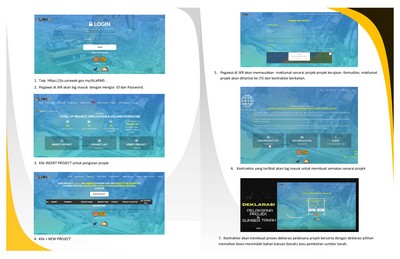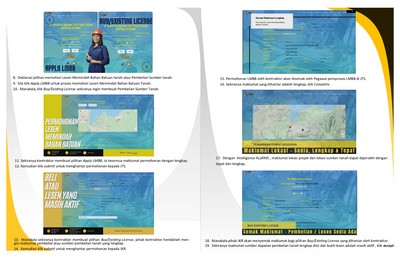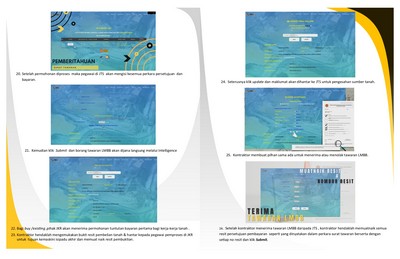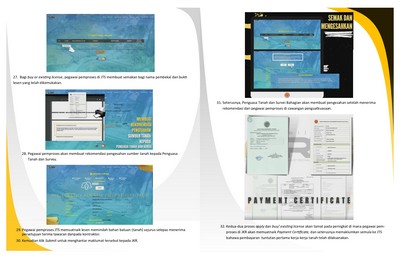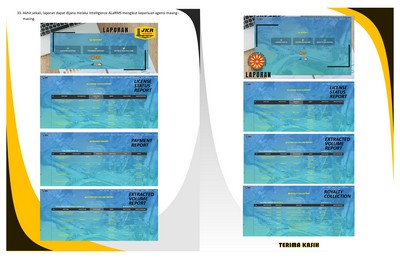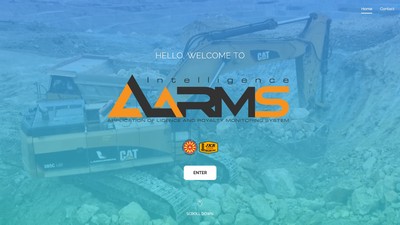Intelligence ALaRMS Boosts Efficiency in LMBB Royalty Collection in Limbang (Part Two)
The Intelligence Application of Licence and Royalty Monitoring System (Intelligence ALaRMS) is the result of a collaborative innovation project by Lands Tahai Q Hybrid Ta’rom to deal with the low royalty collection of LMBB for government projects.
It introduces an integrated new work process as a guide to managing development projects involving earth filling, from the preparation of project procurement documents at JKR, the management of earth licence at JTS and up to the process of payment of claims to contractors.
The innovation project has also led to the development of an online monitoring system designed as a communication platform between JTS, JKR and contractors involved to support the aforementioned work process.
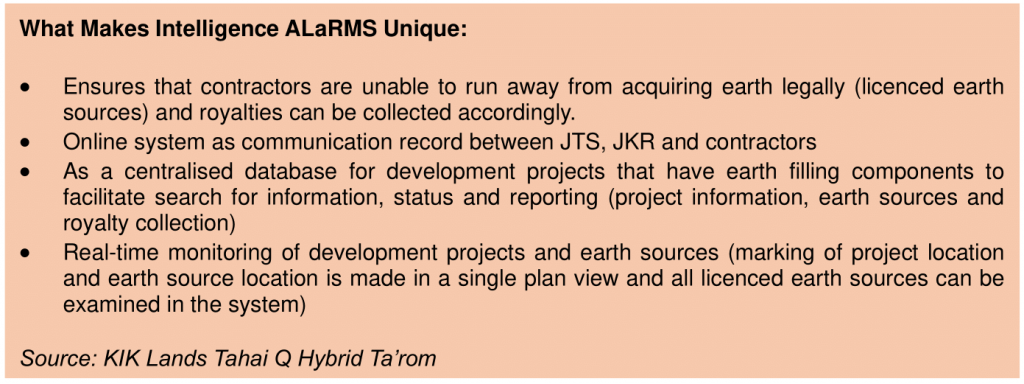
When contractors were first introduced to Intelligence ALaRMS, Lands Tahai Q Hybrid Ta’rom noted that there were a certain degree of uncertainty from them regarding its effectiveness.
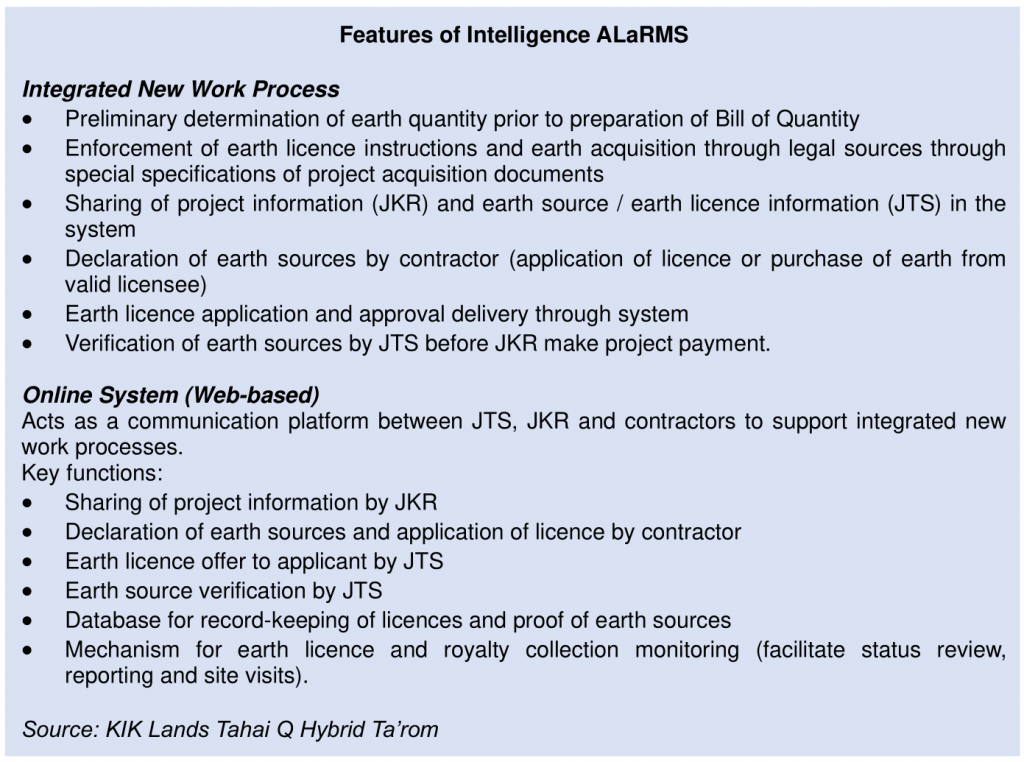
Upon further explanation and clarification from the KIK hybrid team, however, their stakeholders understood and agreed with the potential and more importantly “fairness” of the system, for its implementation in the long run ensured that every contractor involved in earthworks as well as every earth source must be licenced.
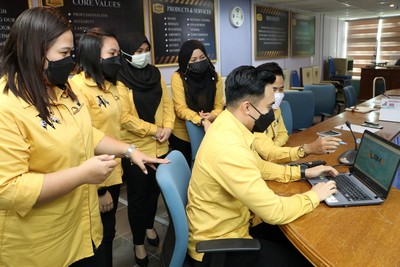
Such challenge was not the only one the team managed to overcome. Throughout development itself, a lot of “brainstorming” took place in designing and aligning the innovation’s work process, primarily due to the fact that as a hybrid team, both JTS and JKR needed to consider aspects of their respective agencies.
“Agreement in changing and combining certain parts of the work process can be difficult to reach because not every information can be shared as input to the system.
“Nevertheless, working together to create and find weaknesses to solve and improve the process has allowed us to save operational costs,” said members of Lands Tahai Q Hybrid Ta’rom.
This demonstrated the strategic engagement that JTS and JKR intended to achieve through the innovation project, which strove to drive better quality services, strengthen enforcement, improve monitoring quality, and help increase government revenue through LMBB royalty collection.
